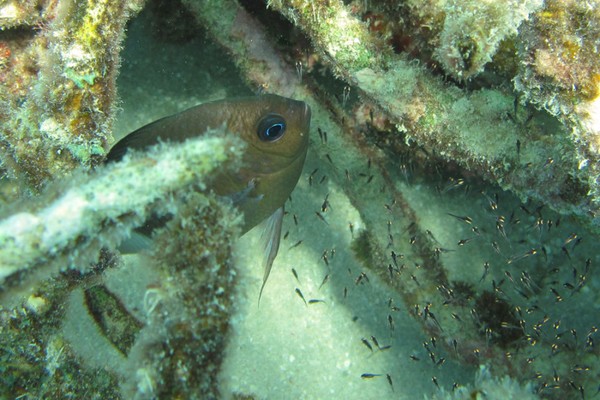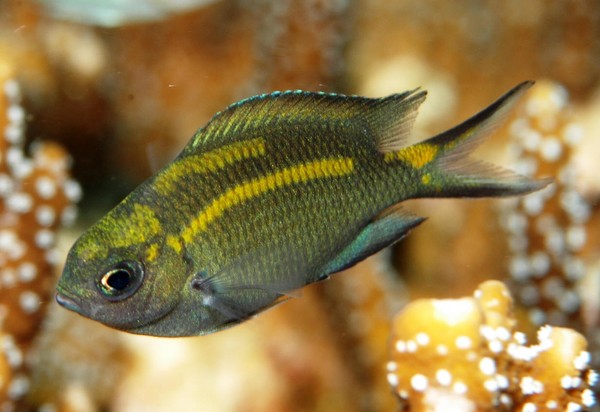Coral fish have the ability to regulate the sex of the fry
According to experts, if the average temperature of water increases by 1.5 degrees Celsius, it will reduce the rate of females born to 30%.
The ability to change the sex of young fish in coral fish
Research recently published in Global Change Biology has shown that the mechanism involves changing the sex ratio in the offspring of coral fish , if the average temperature of water increases by 1.5 degrees Celsius. reduces the rate of females born to 30%.
Research recently published in Global Change Biology shows the mechanism involved in changing the sex ratio in the offspring of coral fish.
Accordingly, experts have pointed out that parents of coral fish species when living in water environments with a high temperature background are able to regulate the sex of the young.

"Learning about the ability of species to respond to and cope with increased environmental temperatures is the key to predicting the biological consequences of warming," said lead author Jennifer Donelson. Global".
Specifically, the researchers found that the average temperature of water in the summer increased by 1.5 degrees C will reduce the rate of females born to 30%.
However, the female sex ratio of the offspring is restored when the broodstock is raised at a lower temperature . According to experts, the proportion of individuals with reduced females can cause special harm because population growth will be limited.
Previous research focused on changes in farming time and behavior, changing nesting positions to cope with global warming. But in this study, we looked for a solution about whether this ability to change sex is inherited and affects the behavior of parents when determining sex.

Dr Donelson said: " A small part of the fish change the sex ratio in the background to 3 degrees Celsius above the average, even in the next two generations, this change continues. ".
Dr. Philip Munday from the ARC Center, who participated in the study, said: "What we know is that the ocean is warming and this study is of great importance in reducing the impact of climate change. "By specifying how exactly coral reefs regulate their gender, we will have new research directions in the conservation of marine species."
- Superhearted coral fish bite English anglers
- Surprise about the ability to distinguish colors of marine ornamental fish
- Discovering new fish species in the Atlantic Ocean
- See exotic fishes in the East India coral reef
- Successful propagation of endangered coral fish
- Artificial breeding of coral fish in red book
- The world's smallest fish 'saves' coral reefs
- Images of platypus fish found in ancient coral reefs
- Give birth to coral fish
- Butterflies have the ability to regulate hearing when attacked
- Explore the coral
- Fish smoking coral meat with death kiss
 Surprised: Fish that live in the dark ocean still see colors
Surprised: Fish that live in the dark ocean still see colors Japan suddenly caught the creature that caused the earthquake in the legend
Japan suddenly caught the creature that caused the earthquake in the legend A series of gray whale carcasses washed ashore on California's coast
A series of gray whale carcasses washed ashore on California's coast Compare the size of shark species in the world
Compare the size of shark species in the world